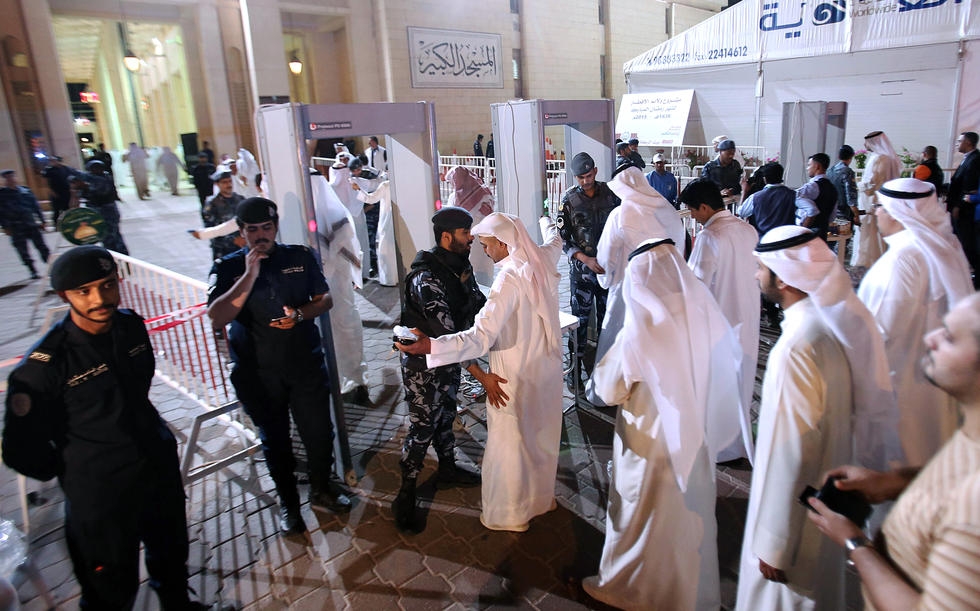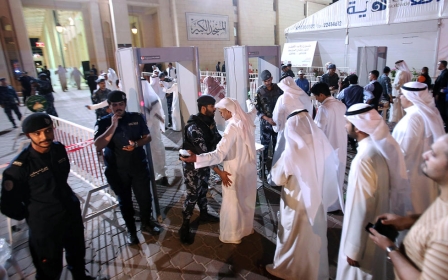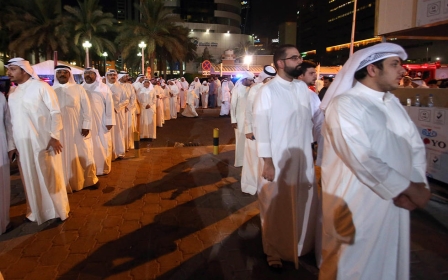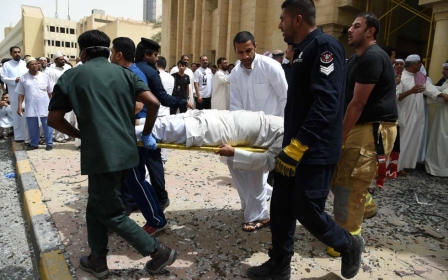Kuwait stops issuing travel documents for stateless nationals after bombing

The Kuwaiti government has stopped issuing travel documents to its community of stateless nationals, or “Bidoons,” after several were found to be involved in a mosque bombing that killed 27 people last week.
A suicide bomber blew himself up at a Shia mosque during Friday prayers, also injuring 227 people in the bloodiest attack to hit Kuwait in years, and the first to target a place of worship.
The bomber was found to be a Saudi national, 23-year-old Abdel Mohsen Suleiman Qabaa – Islamic State, which claimed responsibility for the attack, identified him in a statement by his nom-de-guerre, Abu Suleiman al-Muwahhad.
Kuwaiti police later said they had arrested at least two of Muwahhad’s accomplices, one of whom is suspected of driving the car that dropped him off at Imam al-Sadeq mosque.
A statement from the interior ministry on Sunday named the driver as Abdulrahman Saban Eidan Saud, saying he was an “illegal resident” of Kuwait.
The term “illegal resident” is often used by authorities to describe Bidoons, who number up to 180,000, around 10 percent of the Gulf state’s entire population.
Bidoons, whose local name is taken from the Arabic for “without,” were not given Kuwaiti nationality when the country became independent from the United Kingdom in 1961.
Despite this, Bidoons claim Kuwaiti nationality, but say they are denied the rights other citizens enjoy, such as access to education and the ability to seek public office.
Many have reacted with anger at the government’s decision to stop issuing travel documents for Bidoons after a member of the community was arrested on suspicion of involvement in the attack, the bloodiest to hit Kuwait for decades.
Translation: I really fear that we are replacing one “extremism” with another…Generalising against our Bidoon brothers is racism, extremism and terrorism against an entire group
Many have praised Kuwaitis for displays of unity in the wake of the attack, with the country’s largest Sunni mosque hosting three days of condolence ceremonies.
Despite this, allegations that a member of the Bidoon community was involved in the attack sparked anger among some, who started a hashtag on Twitter that translates to #GetRidOfTheBidoons.
However, activists later started a separate hashtag, #BidoonsAreOurPeople, in support of the community.
New MEE newsletter: Jerusalem Dispatch
Sign up to get the latest insights and analysis on Israel-Palestine, alongside Turkey Unpacked and other MEE newsletters
Middle East Eye delivers independent and unrivalled coverage and analysis of the Middle East, North Africa and beyond. To learn more about republishing this content and the associated fees, please fill out this form. More about MEE can be found here.




